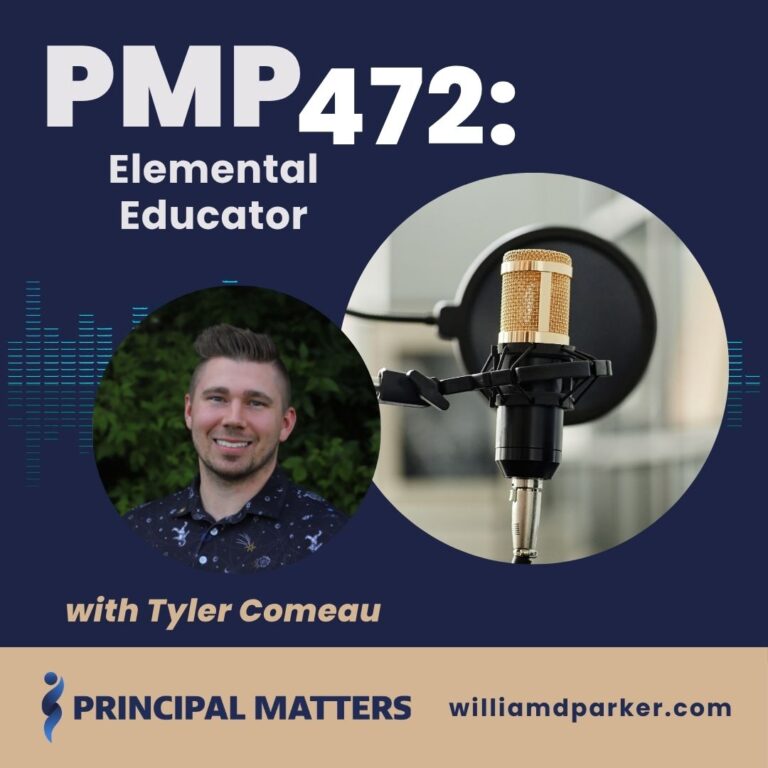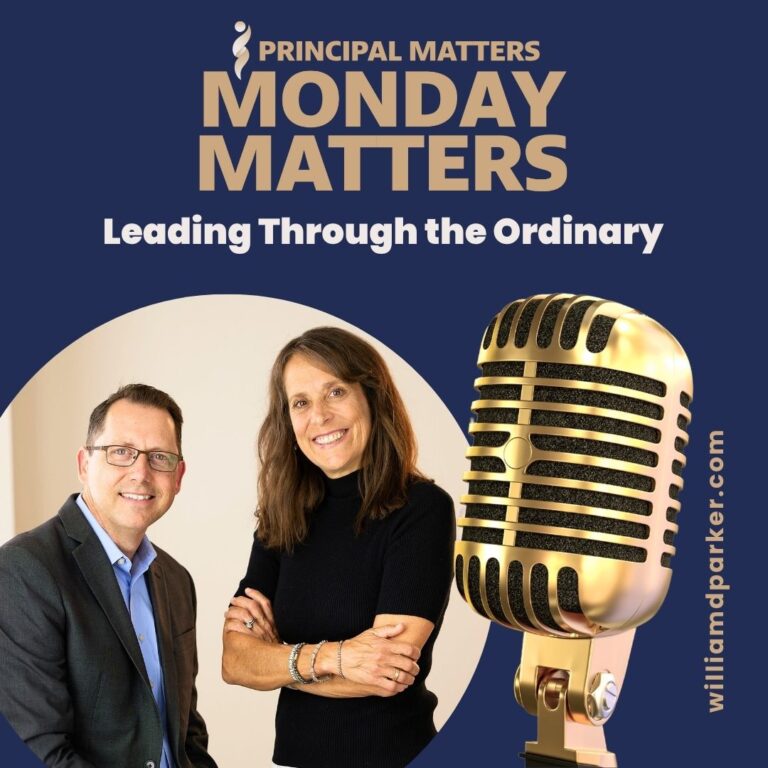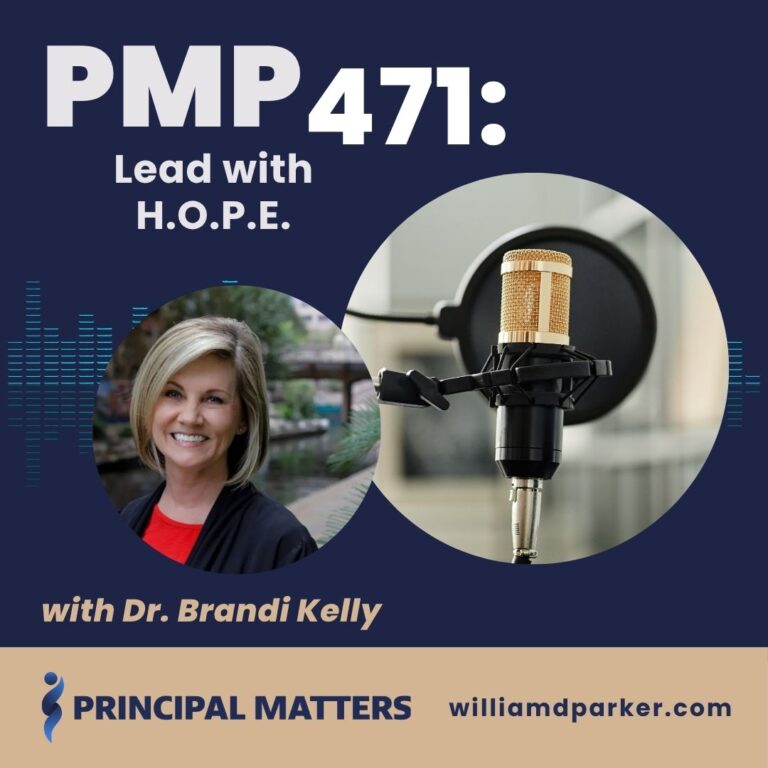Podcast: Play in new window | Download
Hi, Friends. Will Parker here. A quick shout-out to Dr. Jen Schwanke and Dr. Robyn Jackson who agreed to record this special edition of Principal Matters where Jen hosts the show. In this conversation, you’ll find helpful lessons for your leadership as they discuss topics like:
- Reaching 100% of Students
- Principals as “Builders” instead of leaders
- Navigating Leadership as Women
- Confronting the Imposter Syndrome
I heard Robyn Jackson present this summer at the NASSP Ignite Conference, and she has been leading ongoing virtual sessions as part of the Ignite+ series. Her lessons on ‘buildership’ are both motivational and positively provoking as she calls school leaders to a mindset of ‘doing the work of building schools’ rather than just ‘doing the work of leading schools’.
By the way, each month in the fall of 2023, the National Association of Secondary School Principals is hosting virtual meetings led by Jimmy Casas, Dr. Salome Thomas-El, Dr. Robyn Jackson, Dr. Jen Scwhanke, and me. You can find out more or register at: https://nassp.org/igniteplus
Finally, I want to highlight my favorite quote from today’s interview, when Dr. Jackson says, “I don’t have to be your fantasy of a school leader in order to be transformative in the work I do. Who I am is sufficient.” I hope you find this conversation refreshing and challenging. A big thank you to Dr. Jen Schwanke for hosting this special edition, and to Dr. Robyn Jackson for providing an episode packed with valuable lessons for Principal Matters listeners. As always, thank you for learning together, and thank you for doing what matters! – WDP
PMP Special Edition Highlights:
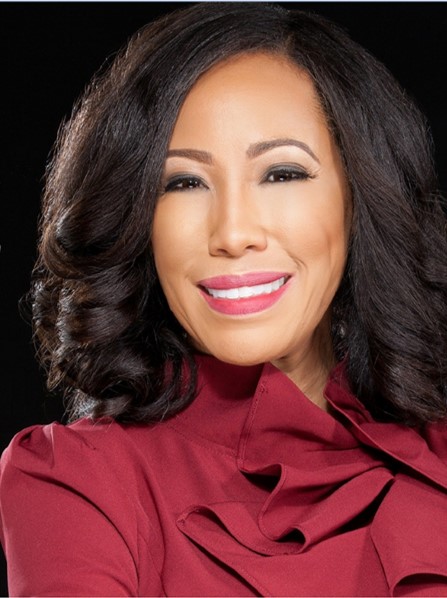
In this powerful and inspiring episode of Principal Matters, Jen Schwanke speaks with Robyn Jackson, CEO of Mindsteps® Inc. and creator of Buildership® University. “So many administrators are working incredibly hard and trying to eke out small incremental gains,” she says. “What if we could create schools in which every teacher and every administrator truly believed every kid could be successful?”
That’s the question Robyn first mulled over when she started her career as an educator. At the time, she was a high school English teacher, committed to sustaining rigor while also refusing to let students fail. It was this mindset of believing all her students could be successful in high-level classes that led her out of the classroom to instructional coaching. In that role, she challenged teachers to take risks, think differently about motivation and results, and improve their instructional practices with intention.
The problem? Many times, these teachers would be met with resistance from administrators who might not be open to their efforts. Robyn started to think she might need to focus her work away from teachers and toward supporting principals—in other words, she wanted to help principals change their mindsets toward a focus on transforming their schools.
Right about then, Robyn’s supervisors decided they needed more of her. On the day they came to find her, intending to promote her, she quit. The decision may have seemed impulsive, but it wasn’t, not really— she knew she wanted to write a book, and she was convinced she could find a way to coach principals to become “builders” rather than simply leading their schools. She wanted to make more of a difference by building structures and systems for principals so they could let teachers grow.
Several books later, Robyn now devotes her time to supporting principals. She often tells them, “Stop leading and start building.” So many times, she says, principals are working hard but not necessarily doing the hard work. She explains how she improved her efficiency and developed structures within her school, enabling her to work reasonable hours but be sure those hours were spent actually improving her school. She outlines why it is important for principals to build long-lasting structures and systems so they don’t keep spending their time on different versions of the exact same problem.
Robyn and Jen get real, too, in discussing some of the challenges faced by women, particularly Black women, who do leadership work in the field of education. Finding strength, Robyn explains, comes from “protecting your confidence,” so that “nothing you encounter can stop you. Nothing.”
Robyn can be found at https://buildershipuniversity.com/ or listen to her podcast at School Leadership Reimagined. She is the author of multiple books for ASCD and has also contributed multiple articles and blog posts for ASCD. Listen to the entire conversation for more powerful takeaways, and thank you for doing what matters!
Three Leadership Takeaways from Dr. Nick Davies
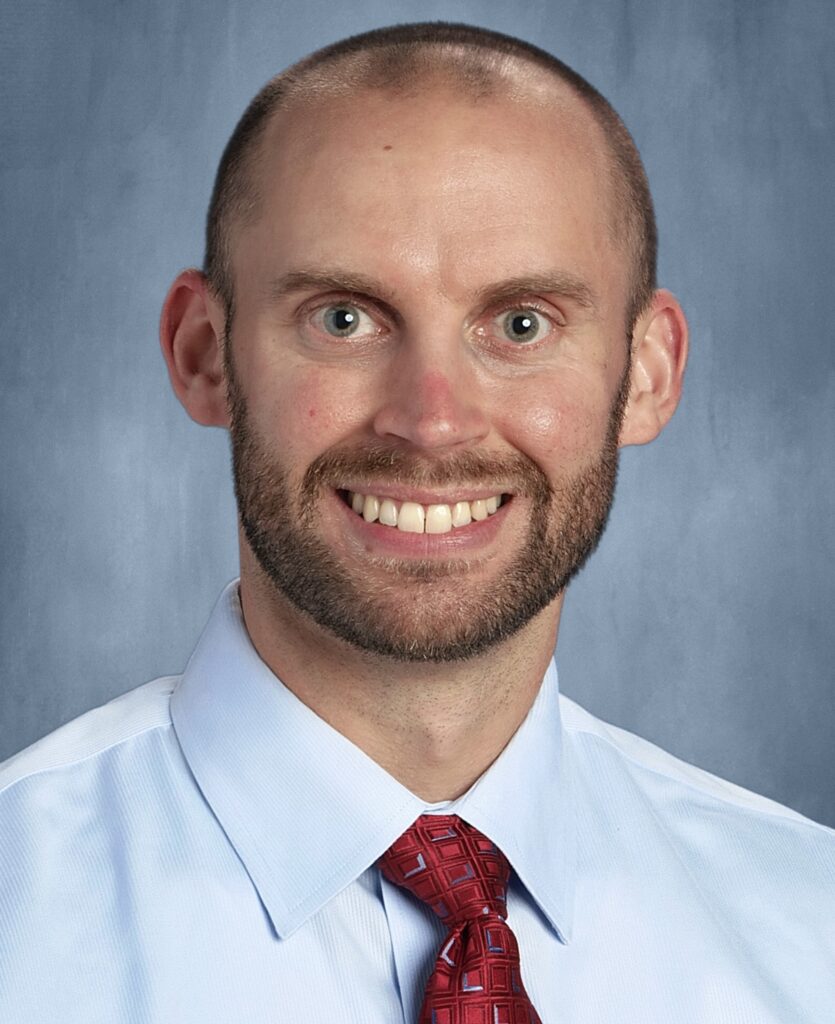
Principal Matters is proud to include contributing posts from Dr. Nick Davies, an elementary associate principal for Vancouver Public Schools. He is a Principal Matters Associate and posts his own weekly podcast version of the following content at “Monday Mornings with Dr. Nick” which can be found at https://www.linkedin.com/in/nick-davies-education/
Get Your Ego Out the Door
Bobby Dodd is a National Digital Principal of the year from Ohio. He is currently the principal of a large high school in Ohio, is a Jimmy Casas Associate, a national speaker, and so much more (including that he has a law degree!). Bobby and I met at the NASSP Ignite Conference and I was able to hear him speak on 10 Easy Ways to Build Leadership Capacity – it was a great session! I interviewed him recently to talk more about leadership and to continue to learn from him. Here are my 3 takeaways.
Put Protocols in Place to Help You Work Smarter
Bobby talked about how helpful it has been to him to have protocols/processes in place for just about everything in a school. Some of the protocol examples he mentioned were around teacher growth, classroom walk-throughs, communication, and job expectations for teachers and administrators. These might look different for different buildings, and he encouraged me to check out the book, Tool Time for Education by David Langford. This year Bobby will have a new AP on his leadership team. As a result, he will set aside time to ensure the new AP understands all of the tools that the admin team uses. These protocols extend to meetings as well. Bobby talked about how important it is to run effective meetings and to value everyone’s time. It is OK to cancel a meeting if it could be an email, video, or screencast. Furthermore, principals need a process to learn to delegate. He mentioned Jimmy Casas has one in his book Recalibrate, but it is about learning to let go and trust other people to do good work. All of these things have allowed Bobby to work smarter than he used to so he can get more work done during the day and go home at night.
Get Organized
It is pretty clear that Bobby is a systems expert on how to run a school. He continued to talk about how he loves the organization piece of running a school and getting the year off to a good start. He enjoys ensuring teachers are ready to be successful and have everything they need. The way he put it, if teachers aren’t in a good place, kids won’t be ready! Bobby talked about how not bringing work home in the evenings or weekends has been beneficial to him. That said, he does do one piece of work every weekend and this has been a key for him to have time in his day to get things done. He spends a little time on Sunday mornings getting his calendar set up for the week. He schedules 10 walk-throughs for the week, which is an expectation for all of the administrators, blocks out lunch and dismissal, and then schedules purposefully the other times in his day. He gets alerts about when and where he is supposed to be which keeps him on track throughout the day. For his associates, he encourages them to do the same thing with their calendars with a focus on putting the most important things at the beginning of the day. Unless it is an emergency, discipline can sometimes wait while the associates are in classrooms or doing other things.
How can I Help Other People?
Bobby and I talked a lot about how a principal can support staff and their school. I should note that when Bobby talks about his staff, he is referring to all staff members: teachers, clerks, secretaries, custodians, cafeteria workers, etc. All of these roles are important in schools. Some of the keys to supporting other people are to listen, build relationships, and show compassion. He wished that he would have known more about servant leadership when he first became an administrator. A principal’s first thought should be ‘how can I help other people?’ and not ‘do what I say!’ Bobby told the story of his first principal job in rural Ohio where the small staff did everything he asked. When he moved to a very large school, that no longer happened, so he approached his work differently. Now he has quarterly meetings with all staff members. He gets feedback and then shows people that he is listening by doing things about what they say. This is when he told me, ‘Get your ego out the door!’ It is not all about you as the principal. It is about the people who work for us. He finished with ‘don’t take yourself too seriously.’
Bobby recommended the book he is reading right now with his admin team: Thrivers by Michele Borba
Thank you for your time and advice!
Sincerely, Dr. Nick


